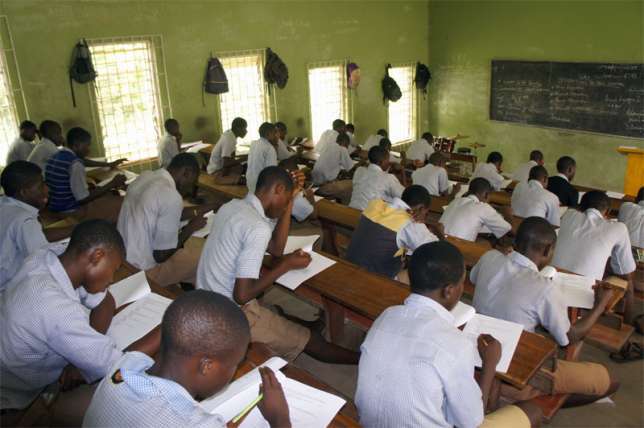NEWS
Three Ways To Improve Education In Africa

Education has always been a foundation for success, and this is no different in Africa. While education has not always been a priority on the continent, there is need now more than ever to reassess this viewpoint. Child enrollment figures from schools around Africa have been growing at rapid paces. The State of Education in Africa Report 2015 states that enrollment in primary schools more than doubled between 1990 and 2012 and this number will only rise in the coming years. In order to succeed, Africans need to invest more time and energy into improving education. Here are three ways Africa can improve its education system:
- Invest in Teachers. To start improving the quality of education, teachers need to be given more resources and better professional training. Qualified teachers are key to providing students with solutions to their educational endeavors and Africa is experiencing an extreme shortage of qualified teachers. According to the State of Education in Africa Report, the best way to achieve sound education is by implementing a standardized teacher certification process. A rigorous certification process ensures a way to measure a teacher’s effectiveness and leaves new teachers well equipped to teach students, particularly in specific fields. By training teachers and giving them the information needed to help their pupils excel, we are creating a new generation of educators.
Another key problem is keeping good teachers in the system. Underpaid educators find it very easy to leave their jobs in search of better compensation and recognition. Not only is salary low, but morale and recognition is too. With lack of prestige, there is little motivation to aspire young adults for a life in teaching. There needs to be an increased sense of value in being a teacher, and this can only occur once educational institutions recognize their importance and adapt to the challenge.
- Prioritize Universities. According to information from Harvard’s Higher Education in Sub-Saharan Africa, university enrollment rates in sub-Saharan Africa are among the lowest in the world, averaging 5%. There are many reasons for this, and one is the fact that there are not a great amount of higher education institutions in Africa. Quality students will tend to attend University in the UK or in the United States. In order to reverse this, there needs to be an increase in universities built and the government needs to help this process through grants or funds.
Universities open a great deal of opportunity to students, professors and surrounding communities through research and skilled vocational training. Many Africa job markets are dependent on oil due to the size of the industry, but countries across the region are challenging young minds to look elsewhere and diversify. In order for young minds to achieve these feats, universities need to be established to train youth with the appropriate skills needed to diversify the market.
- Focus on Student Needs. Africa can learn from Finland on this initiative; in order for children to care about learning, they need to enjoy their schooling experience. This includes an ample amount of recess time in between classes, giving them a time to channel their energy, digest what they have learned, and exercise. Finland also values the relationships students build with their teachers. Finnish students can have the same teacher for up to six years, allowing for deeper relationships between teachers and pupils to build, giving the teachers insight to better mechanisms to help their students learn. If qualified teachers spend extra time getting to know their students, they can adapt to giving extra assistance to the struggling students, creating a less frustrating experience for everyone involved.
Curriculum should be updated regularly to maintain modern teaching methods, including the integration of STEM subjects – Science, Technology, Engineering, and Math. Updated curriculums will assist students in furthering their educational interests as well as introducing them to new subjects. These important new subjects will also introduce students to different career paths, enabling the future diversification of African markets.
With an increase in quality teaching, coupled with a growth in universities and attention to student needs, Africa has the potential to become an education powerhouse. Investment in Africa’s education system is necessary to accommodate the burgeoning enrollment numbers, proving an investment in a child’s education is an investment for a brighter future.































